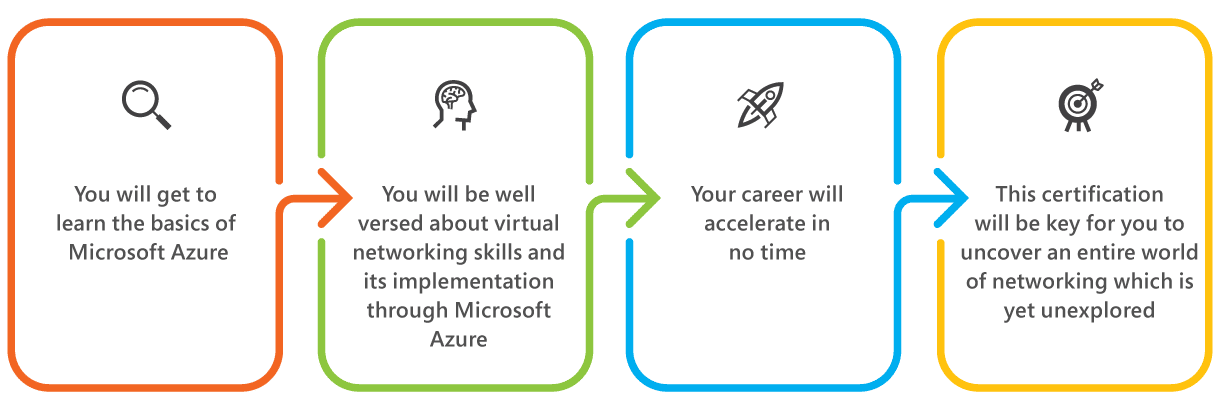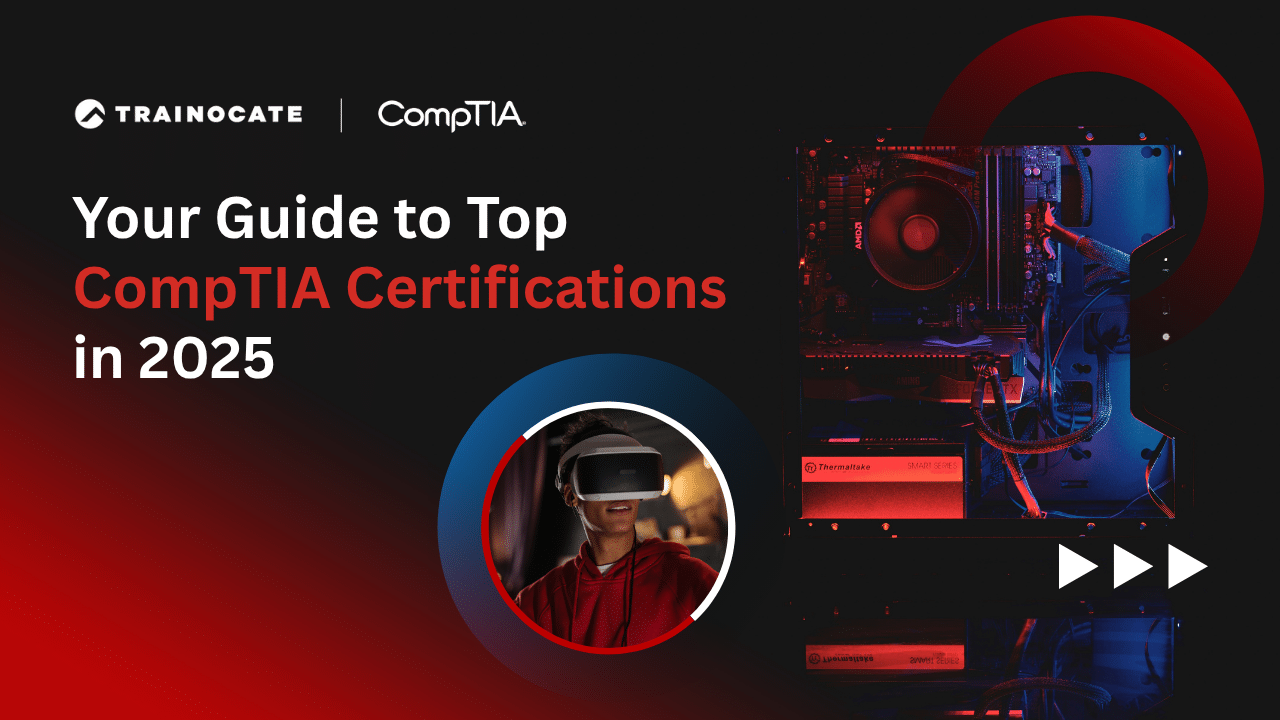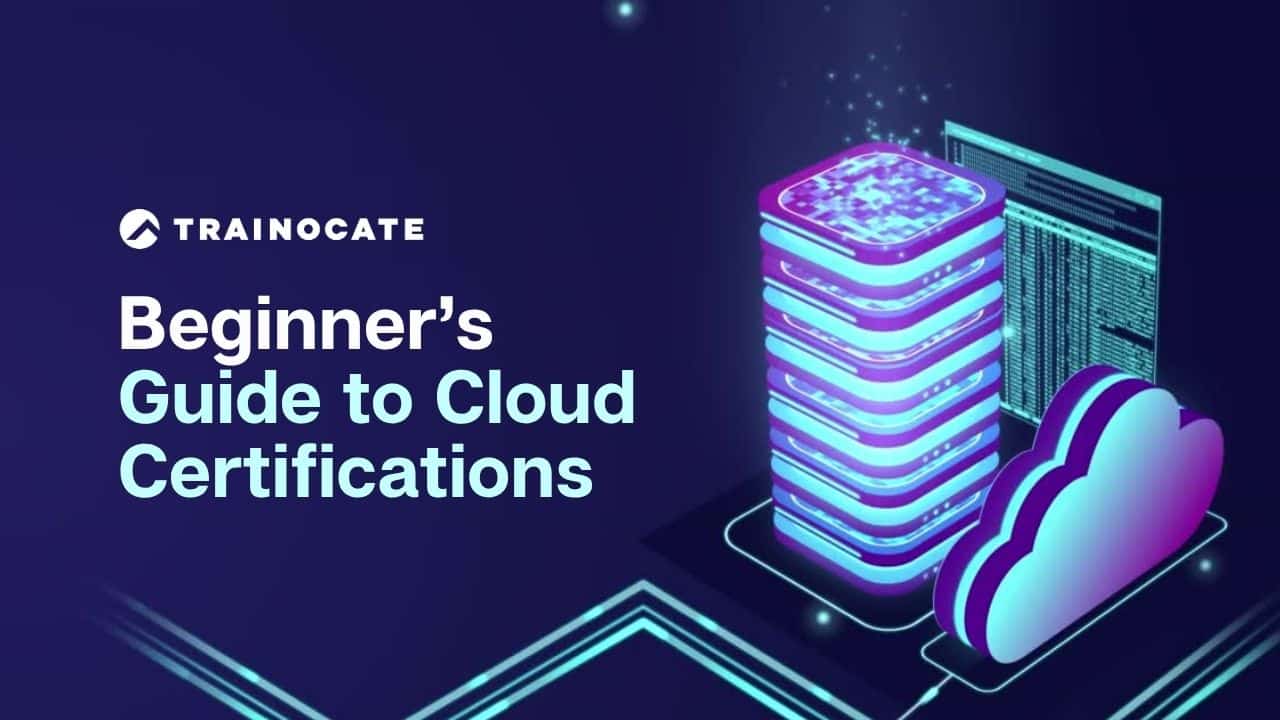Azure Certification Path 2025: Where to start with Azure Certifications
Azure Certification Path 2025: Where to start with Azure Certifications

Discover Your Path to Azure Certification Success
Whether you’re launching or advancing your cloud career in 2025, Azure certifications validate your skills across identity, governance, AI, data, and infrastructure. Since November 2023, Microsoft has retired certain exams and introduced updated formats—this guide outlines the current Azure certification path, highlighting new fundamentals, added hybrid roles, and emerging specialty tracks to align with evolving cloud careers.
Understanding the importance of showcasing your expertise in specialized cloud roles through Microsoft Azure certifications is crucial for advancing in the IT field. Yet, many individuals remain uncertain about which Azure certifications align best with their immediate professional objectives.
To guide you in selecting the most fitting Azure certification, we offer a comprehensive guide on the multiple Azure certification paths available to cloud professionals. This guide includes detailed information on various Azure certifications, their pricing, scope, and more, ensuring you make an informed decision.
Choosing the right Azure certification can often be challenging, akin to navigating a minefield. This article is crafted to address your concerns, simplify the decision-making process, and make your path to Azure certification straightforward and stress-free.
Why are Microsoft Azure certifications so important?
Azure now powers over 24% of global cloud workloads—used by 350,000+ organizations, including 85–95% of Fortune 500 enterprises—making Azure proficiency one of the most marketable IT skills in 2025.
Certifications align you with in-demand roles such as Security Engineer, AI Engineer, DevOps Engineer, and Hybrid Cloud Administrator, helping you stand out in today’s competitive cloud job market.
Microsoft has been at forefront of ensuring that the global workforce is prepared to take on this substantial task by validating and certifying top applicants who are the best suited for a specific job position, according to Microsoft. Microsoft certifications can undoubtedly add value to a candidate’s professional journey as most businesses now prefer to have prospective employees with certifications on tow.
Azure Certification Path
There are four levels of Microsoft certifications Azure Certification path levels, covering beginner to expert level azure cloud certification.
-
Fundamentals Certification – If you are a beginner, your Azure journey will start with Fundamentals Certification. Candidates with non-technical backdrop can also step into cloud computing through these certifications.
-
Associate Certification – Candidates who have a fair idea of Azure can aim toward associate certifications.
-
Expert Certification – You can obtain an expert certification if you have experience, a solid comprehension of the subject, and associate-level familiarity with Azure.
-
Specialty Certification – It is the highest level Azure certification. Candidates can opt for this Azure certification, if they want to apply for roles like Azure IOT Developer Specialty and Azure for SAP Workloads.
Gain an edge with Azure Certification
Azure Fundamental Level Certifications
Get hired, stay ahead, be productive, and receive the recognition you deserve with Microsoft Certified: Fundamentals. These highly marketable, industry-respected certifications offer foundational training and exams that provide a practical, high-level overview of Microsoft technology and validate your up-to-date knowledge of the topics.
Whether you’re a technical professional, student, or business professional, Azure fundamentals certification are designed to help you accelerate your progress, boost your career, and stay current with evolving cloud technology trends. It can be the first step on your journey for role-based or specialty certifications, but it isn’t a prerequisite for any of them.
| Code | Fundamentals-Level Certifications |
|---|---|
| AZ-900 | Microsoft Certified: Azure Fundamentals |
| DP-900 | Microsoft Certified: Azure Data Fundamentals |
| AI-900 | Microsoft Certified: Azure AI Fundamentals |
| SC-900 | Microsoft Security, Compliance, and Identity Fundamentals |
Microsoft Certified: Azure Fundamentals (AZ-900)
Learn the basics of Microsoft Azure, the cloud trusted by 95 percent of Fortune 500 companies. Gain understanding of cloud computing concepts, the range of Azure services, and the differences between public, private, and hybrid clouds. Recommended for early career cloud professionals and aspiring students.
Requirements: Exam AZ-900: Microsoft Azure Fundamentals
Prerequisites: None
Skills Covered
- Define cloud computing and its key advantages.
- Explain public, private, and hybrid cloud models.
- Explain IaaS, PaaS, and SaaS cloud services.
- Identify core Azure architectural components, such as regions, geographies, and resource groups.
- Identify usage cases for Azure core services and products, such as virtual machines and storage.
Microsoft Certified: Azure Data Fundamentals (DP-900)
Take the next step in your cloud career by learning the foundational concepts you need to confidently contribute to an organization’s data-driven decision making and processes. Topics include relational data, nonrelational data, big data, and analytics. Recommended for early career data management professionals and aspiring students.
Requirements: Exam DP-900: Microsoft Azure Data Fundamentals
Prerequisites: None
Skills Covered
- Describe core data concepts in Azure
- Explain concepts of relational data in Azure
- Explain concepts of non-relational data in Azure
- Identify components of a modern data warehouse in Azure
Microsoft Certified: Azure AI Fundamentals (AI-900)
Master the basics of AI on Azure and gain the foundation to advance your career in this exciting field. This certification demonstrates your knowledge of common AI and machine learning workloads and the Azure services needed to run them. Recommended for early career AI professionals and aspiring students.
Requirements: Exam AI-900: Microsoft Azure AI Fundamentals
Prerequisites: None
Skills Covered:
- Describe Artificial Intelligence workloads and considerations
- Describe fundamental principles of machine learning on Azure
- Describe features of computer vision workloads on Azure
- Describe features of Natural Language Processing (NLP) workloads on Azure
- Describe features of conversational AI workloads on Azure
Microsoft Certified: Security, Compliance, and Identity Fundamentals (SC-900)
Advance your knowledge on a range of cybersecurity topics and build a foundation for advanced certifications that prepare you for in-demand roles in security operations, identity and access management, and information protection. Recommended for early career IT security professionals and aspiring students.
Requirements: Exam SC-900: Microsoft Security, Compliance, and Identity Fundamentals
Prerequisites: None
Skills Covered
- Describe basic concepts of security, compliance, and identity.
- Describe the concepts and capabilities of Microsoft identity and access management solutions.
- Describe the capabilities of Microsoft security solutions.
- Describe the compliance management capabilities in Microsoft.
Azure Associate-level certifications
| Code | Associate-Level Certifications |
|---|---|
| AZ-104 | Microsoft Certified: Azure Administrator Associate |
| AZ-204 | Microsoft Certified: Azure Developer Associate |
| DP-300 | Microsoft Certified: Azure Database Administrator Associate |
| AZ-500 | Microsoft Certified: Azure Security Engineer Associate |
| AZ-700 | Microsoft Certified: Azure Network Engineer Associate |
| DP-203 | Microsoft Certified: Azure Data Engineer Associate |
| AI-102 | Microsoft Certified: Azure AI Engineer Associate |
| AZ-600 | Microsoft Certified: Azure Stack Hub Operator Associate |
| AZ-800 + AZ–801 | Microsoft Certified: Windows Server Hybrid Administrator Associate |
| DP-100 | Microsoft Certified: Azure Data Scientist Associate |
| DP-500 | Microsoft Certified: Azure Enterprise Data Analyst Associate |
| SC-200 | Microsoft Certified: Security Operations Analyst Associate |
| SC-300 | Microsoft Certified: Identity and Access Administrator Associate |
Microsoft Certified: Azure Administrator Associate (AZ-104)
Learn to manage Microsoft Azure identities and governance; implement and manage storage; deploy and manage Azure compute resources; configure and manage virtual networking; and monitor and back up Azure resources in this 4-days Microsoft Certified: Azure Administrator Associate course.
Required Exam: Exam AZ-104: Microsoft Azure Administrator
Required Course: AZ-104T00: Microsoft Azure Administrator
Prerequisites: None
Skills Covered
- Secure and manage identities with Azure Active Directory.
- Implement and manage users and groups.
- Implement and manage Azure subscriptions and accounts.
- Implement Azure Policy, including custom policies.
- Use RBAC to assign permissions.
Microsoft Certified: Azure Developer Associate (AZ-204)
This Microsoft Azure Developer Associate certification course teaches developers how to create end-to-end solutions in Microsoft Azure. Students will learn how to implement Azure compute solutions, create Azure Functions, implement and manage web apps, develop solutions utilizing Azure storage, implement authentication and authorization, and secure their solutions by using KeyVault and Managed Identities.
Required Exam: Exam AZ-204: Developing Solutions for Microsoft Azure
Required Course: AZ-204T00: Developing Solutions for Microsoft Azure
Prerequisites: None
Skills Covered
- Develop Azure compute solutions
- Develop for Azure storage
- Implement Azure security
- Monitor, troubleshoot, and optimize Azure solutions
- Connect to and consume Azure services and third-party services
Microsoft Certified: Azure Database Administrator Associate (DP-300)
If you understand the transformation from on-premises databases to cloud data services—and the cloud database technologies available to you with Azure—now is the time to showcase the value you add to your organization as a database administrator with the Microsoft Certified: Azure Database Administrator Associate credential.
Requirements: Exam DP-300: Administering Relational Databases on Microsoft Azure
Required Course: DP-300T00: Administering Relational Databases on Microsoft Azure
Prerequisites: Microsoft says people eyeing this cert should understand all the concepts covered in DP-900 Exam for the Microsoft Azure Data Fundamentals certification.
Skills Covered
After completing this course, students will be able to:
- Plan, deploy and configure Azure SQL offerings
- Monitor database performance and tune a database and queries for optimum performance
- Plan and configure a High Availability Solution
Microsoft Certified: Azure Security Engineer Associate (AZ-500)
If your responsibilities as part of a larger team include maintaining the security posture, identifying and remediating vulnerabilities by using a variety of security tools, implementing threat protection, and responding to security incident escalations, this Microsoft Certified: Azure Security Engineer Associate could be the certification for you.
Required Exam: Exam AZ-500: Microsoft Azure Security Technologies
Required Course: AZ-500T00: Microsoft Azure Security Technologies
Prerequisites: None officially, but strong scripting and automation chops plus familiarity with networking, virtualization, and cloud are needed for the exam.
Skills Covered
- Implement enterprise governance strategies including role-based access control, Azure policies, and resource locks.
- Implement an Azure AD infrastructure including users, groups, and multi-factor authentication.
- Implement Azure AD Identity Protection including risk policies, conditional access, and access reviews.
- Implement Azure AD Privileged Identity Management including Azure AD roles and Azure resources.
- Implement Azure AD Connect including authentication methods and on-premises directory
Microsoft Certified: Azure Data Scientist Associate (DP-100)
A data scientist promotes a data-driven culture using rigorous scientific methodology and algorithms to discover and resolve business problems and to pursue opportunities to help achieve their organization’s goals.
If this describes you, your skill set, and your passion for data, the Microsoft Certified: Azure Data Scientist Associate certification is made for you.
With a reported average annual salary of $84,040 according to Skillsoft’s IT Skills Salary Report 2022, he Microsoft Certified: Azure Data Scientist Associate certification isn’t just a piece of paper – it’s a gateway to a world of exciting possibilities. ith this certification, you’ll be diving into the heart of Azure’s innovative data science technologies, positioning yourself at the forefront of an industry that’s shaping our future. Whether your passion lies in leading groundbreaking projects, exploring the depths of analytics, or driving insightful business decisions, this journey is for you.
Required Exam: Exam DP-100: Designing and Implementing a Data Science Solution on Azure
Required Course: DP-100T01: Designing and Implementing a Data Science Solution on Azure
Prerequisites: None, but test-takers typically have a history with computer science, math, and statistics.
Skills Covered
- Manage Azure resources for machine learning
- Run experiments and train models
- Deploy and operationalize machine learning solutions
- Implement responsible machine learning
Microsoft Certified: Fabric Analytics Engineer Associate
Build subject matter expertise in designing, creating, and deploying enterprise-scale data analytics solutions.
Fabric Analytics Engineers transform data into reusable analytics assets, including semantic models, reports, dataflows, data pipelines, notebooks, lakehouses, and data warehouses. Fabric is built on the Power BI experience you are familiar with, making your transition to Analytics Engineering easier and quicker. This certification is ideal for Power BI Data Analysts looking to upskill to data engineering tasks.
Requirements: DP-600: Implementing Analytics Solutions Using Microsoft Fabric
Required Course: DP-600T00: Microsoft Fabric Analytics Engineer
Prerequisites: This course is best suited for those who have the Microsoft Certified: Power BI Data Analyst Associate certification or similar expertise in using Power BI for data transformation, modeling, visualization, and sharing. Also, learners should have prior experience in building and deploying enterprise data analytics solutions.
Skills Covered
- Prepare and enrich data for analysis
- Secure and maintain analytics assets
- Implement and manage semantic models
Microsoft Certified: Fabric Data Engineer Associate
Prove your in-demand data engineering skills and champion AI innovation. This new certification validates the skills needed to implement and manage analytics solutions using Microsoft Fabric, a unified, AI-powered solution that integrates Power BI, Azure Data Factory, and Azure Synapse Analytics to help you turn raw data into actionable insights.
Requirements: Exam DP-700: Implementing Data Engineering Solutions Using Microsoft Fabric
Required Course: DP-700T00: Microsoft Fabric Data Engineer
Prerequisites: Learners should have experience at manipulating and transforming data with one of the following programming languages: Structured Query Language (SQL), PySpark, or Kusto Query Language (KQL).
Skills Covered
- Ingesting and transforming data.
- Securing and managing an analytics solution.
- Monitoring and optimizing an analytics solution.
Microsoft Certified: Azure AI Engineer Associate (AI-102)
Take your AI skills to the next level with the Microsoft Certified: Azure AI Engineer Associate credential.
Gain expertise and skills needed to embed artificial intelligence capabilities into apps, including Cognitive Services, natural language processing, and conversational AI with the Azure AI Engineer Associate certification.
Requirements: Exam AI-102: Designing and Implementing a Microsoft Azure AI Solution
Required Course: AI-102T00: Develop AI Solutions in Azure
Prerequisites: None, but if you’re coming from a non-technical background, you’ll need to learn Python and software development and get studied up on data science, math, and machine learning.
Skills Covered
- Describe considerations for AI-enabled application development
- Create, configure, deploy, and secure Azure Cognitive Services
- Develop applications that analyze text
- Develop speech-enabled applications
- Create applications with natural language understanding capabilities
Microsoft Certified: Azure Network Engineer Associate (AZ-700)
If you plan, implement, and maintain Azure networking solutions, including hybrid networking, connectivity, routing, security, and private access to Azure services, be sure to check this Microsoft Certified: Azure Network Engineer Associate certification out.
Requirements: Exam AZ-700: Designing and Implementing Microsoft Azure Networking Solutions
Required Course: AZ-700T00: Designing and Implementing Microsoft Azure Networking Solutions
Prerequisites: Successful Azure Network Engineers start this role with experience in enterprise networking, on-premises or cloud infrastructure and network security.
Skills Covered
- Design, implement and manage hybrid network connections
- Design and implement core Azure networking infrastructure
- Design and implement routing and load balancing in Azure
- Secure and monitor networks
- Design and implement private access to Azure Services
Microsoft Certified: Security Operations Analyst Associate (SC-200)
The Microsoft security operations analyst collaborates with organizational stakeholders to secure information technology systems for the organization. Their goal is to reduce organizational risk by rapidly remediating active attacks in the environment, advising on improvements to threat protection practices, and referring violations of organizational policies to appropriate stakeholders. Responsibilities include threat management, monitoring, and response by using a variety of security solutions across their environment.
Requirements: Exam SC-200: Microsoft Security Operations Analyst
Prerequisites:
- Basic understanding of Microsoft 365
- Fundamental understanding of Microsoft security, compliance, and identity products
- Intermediate understanding of Windows 10
- Familiarity with Azure services, specifically Azure SQL Database and Azure Storage
- Familiarity with Azure virtual machines and virtual networking
- Basic understanding of scripting concepts.
Skills Covered
- Explain how Microsoft Defender for Endpoint can remediate risks in your environment
- Create a Microsoft Defender for Endpoint environment
- Configure Attack Surface Reduction rules on Windows 10 devices
- Perform actions on a device using Microsoft Defender for Endpoint
- Investigate domains and IP addresses in Microsoft Defender for Endpoint
Microsoft Certified: Identity and Access Administrator Associate (SC-300)
The Microsoft identity and access administrator designs, implements, and operates an organization’s identity and access management systems by using Azure Active Directory (Azure AD). They configure and manage authentication and authorization of identities for users, devices, Azure resources, and applications.
Requirements: Exam SC-300: Microsoft Identity and Access Administrator
Prerequisites: Security best practices and industry security requirements such as defense in depth, least privileged access, shared responsibility, and zero trust model.
Skills Covered
- Implement an identity management solution
- Implement an authentication and access management solutions
- Implement access management for apps
- Plan and implement an identity governance strategy
Azure Expert-level certifications
| Code | Expert-Level Certifications |
|---|---|
| AZ-305 | Microsoft Certified: Azure Solutions Architect Expert |
| AZ-400 | Microsoft Certified: DevOps Engineer Expert |
| SC-100 | Microsoft Certified: Cybersecurity Architect Expert |
Microsoft Certified: Azure Solutions Architect Expert (AZ-305)
The Azure solutions architect is key to all of this and more, and the updated Microsoft Certified: Azure Solutions Architect Expert certification better aligns to the skills of real-world solutions architects and the tasks they perform.
Requirements: Exam AZ-305: Designing Microsoft Azure Infrastructure Solutions, which replaced Exam AZ-303: Microsoft Azure Architect Technologies and Exam AZ-304: Microsoft Azure Architect Design on March 31, 2022
Prerequisites: You must have Exam AZ-104: Microsoft Azure Administration in the bag before attempting to take down this colossal certification and its demanding exam.
Required Course: AZ-305T00: Designing Microsoft Azure Infrastructure Solutions
Skills Covered
- Design a governance solution
- Design a compute solution
- Design an application architecture
- Design storage, non-relational and relational
- Design data integration solutions.
Microsoft Certified: DevOps Engineer Expert (AZ-400)
Modern IT emphasizes working with people, processes, and technologies to continuously deliver business value. If you have these skills, Microsoft Certified: DevOps Engineer Expert is the role-based certification for you.
This expert-level Azure certification a good fit for you if your responsibilities include designing and implementing strategies for collaboration, code, infrastructure, and source control, along with security, compliance, continuous integration, testing, delivery, monitoring, and feedback.
Requirements: Exam AZ-400: Designing and Implementing Microsoft DevOps Solutions
Prerequisites: You’ll need either the Azure Administrator Associate or Azure Developer Associate cert before taking on the DevOps Engineer Expert certification.
Required Course: AZ-400T00: Designing and Implementing Microsoft DevOps Solutions
Skills Covered:
- Plan for the transformation with shared goals and timelines
- Select a project and identify project metrics and Key Performance Indicators (KPI’s)
- Create a team and agile organizational structure
- Design a tool integration strategy
- Design a license management strategy (e.g. Azure DevOps and GitHub users)
Microsoft Certified: Cybersecurity Architect Expert (SC-100)
The Microsoft cybersecurity architect has subject matter expertise in designing and evolving the cybersecurity strategy to protect an organization’s mission and business processes across all aspects of the enterprise architecture.
If this is your skill set, the newly launched Microsoft Cybersecurity Architect Expert certification is the credential you need!
Requirements: Exam AZ-400: Designing and Implementing Microsoft DevOps Solutions
Prerequisites: Advanced experience and knowledge in identity and access, platform protection, security operations, securing data and securing applications.
Skills Covered
- Design a Zero Trust strategy and architecture
- Evaluate Governance Risk Compliance (GRC) technical strategies and security operations strategies
- Design security for infrastructure
- Design a strategy for data and applications
Azure Specialty certifications
| Code | Specialty Certifications |
|---|---|
| AZ-120 | Microsoft Certified: Azure for SAP Workloads Specialty |
| AZ-140 | Microsoft Certified: Azure Virtual Desktop Specialty |
| DP–420 | Microsoft Certified: Cosmos DB Specialty |
Microsoft Certified: Azure for SAP Workloads Specialty (AZ-120)
Candidates for this certification should be architects or engineers with extensive experience and knowledge of the SAP system landscape and industry standards that are specific to the initial migration or integration and the long-term operation of an SAP solution on Microsoft Azure.
Responsibilities for an architect or an engineer for Azure for SAP Workloads include making recommendations on services and adjusting resources as appropriate for optimal resiliency, performance, scale, provision, size, and monitoring.
Requirements: Exam AZ-120: Planning and Administering Microsoft Azure for SAP Workloads
Prerequisites: You should have solid knowledge and experience developing apps for Azure and working with Azure Cosmos DB.
Skills Covered
- Migrate and manage SAP applications (SAP HANA, S/4HANA, SAP NetWeaver) on Azure
- Leverage Azure Portal, Cloud Shell, Azure PowerShell, CLI, Resource Manager, and Resource Manager Te
- Use intersite connectivity features including VNet Peering, VNet-to-VNet connections, Site-to-Site C
- Work with Azure Active Directory (AD), Azure AD Connect, and Azure AD Join, and Azure AD Identity
Microsoft Certified: Azure Virtual Desktop Specialty (AZ-140)
Candidates for the Azure Virtual Desktop Specialty certification are server or desktop administrators with subject matter expertise in designing, implementing, managing, and maintaining Microsoft Azure Virtual Desktop experiences and remote apps for any device.
To deliver these experiences, they work closely with Azure administrators, Azure architects, Microsoft 365 administrators, and Azure security engineers.
Requirements: Exam AZ-140: Configuring and Operating Microsoft Azure Virtual Desktop
Prerequisites: AZ-900T00: Microsoft Azure Fundamentals
Skills Covered
- Select an appropriate licensing model for Windows Virtual Desktop
- Implement networking for Windows Virtual Desktop
- Manage Windows Virtual Desktop session hosts by using Azure Bastion
- Configure storage for FSLogix components
- Create and manage session host images
Microsoft Certified: Azure Cosmos DB Developer Specialty (DP-420)
Candidates for the Azure Cosmos DB Developer Specialty certification should have subject matter expertise designing, implementing, and monitoring cloud-native applications that store and manage data.
Responsibilities for this role include designing and implementing data models and data distribution, loading data into an Azure Cosmos DB database, and optimizing and maintaining the solution. These professionals integrate the solution with other Azure services. They also design, implement, and monitor solutions that consider security, availability, resilience, and performance requirements.
Requirements: Exam DP-420: Designing and Implementing Cloud-Native Applications Using Microsoft Azure Cosmos DB
Prerequisites: You should have experience with operating systems for SAP applications and databases, Azure administration, infrastructure as code, cloud infrastructure, high availability, disaster recovery, backup, security, and data protection.
Skills Covered
- Create and configure Azure Cosmos DB SQL API account, database, and container
- Use the .NET SDK to manage resources and perform operations
- Perform queries of varying complexity
- Design a data modeling and partitioning strategy
- Optimize queries and indexes based on characteristics of an application
Growing your skills with Azure can help you turn ideas into solutions with more than 200 services to build, deploy, and manage applications—in the cloud, on-premises, and at the edge—using the tools and frameworks of your choice. Get started on your Azure learning path today and check out our Azure Certification Path 2022 available for download.
Found a course that you might be interested in, but its not available on the Trainocate catalogue, drop us an email at – [email protected]














